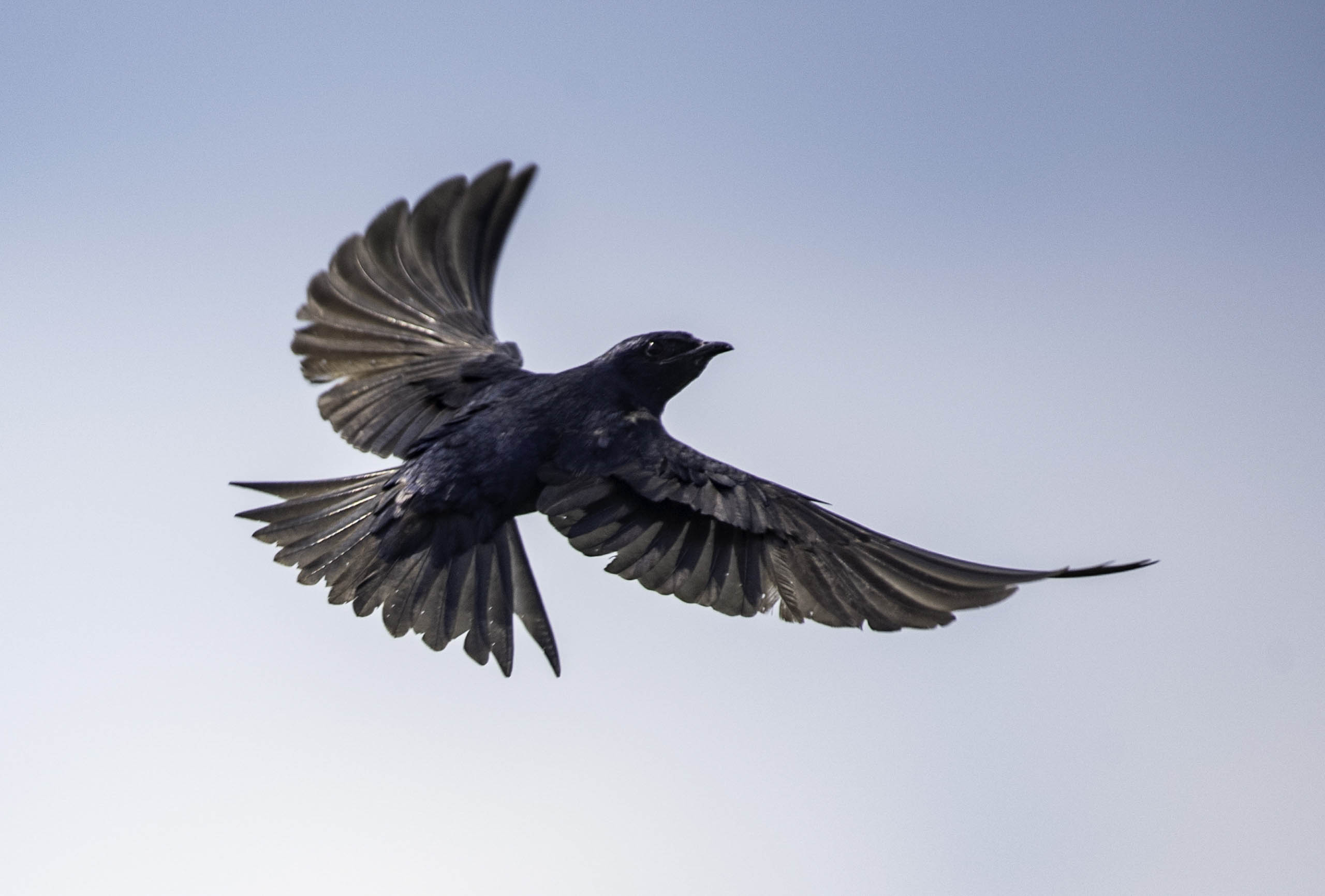150,000+ purple martins were roosting around the Nashville Symphony, creating an expensive mess. Bird lovers, music lovers, and conservation groups came together and donated tens of thousands, saving the symphony grounds and the purple martin migration.
Nashville is one of only 350 purple martin roosting sites in North America.
Late this summer, Tennessee Wildlife Federation and The Nature Conservancy in Tennessee came together to raise funds to support the migration of the region’s purple martins. The conservation and music community rallied to raise more than $27,000, an effort which gained regional and national attention.
Each year, the global population of purple martins gather at just 350 roosting sites in North America as they prepare for their winter migration to South America. One of those sites has long been in and around Nashville.
The natural phenomenon only lasts a few weeks but it can create an expensive mess for the property owner. This year, more than 150,000 purple martins roosted in the trees surrounding the Schermerhorn Symphony Center, home of the Nashville Symphony.
The Symphony has been hit hard financially by the pandemic and needed a solution. The birds could have been driven away cheaply, but that would have greatly disrupted their migration.
To save their migration and the Symphony grounds, the Federation and the Conservancy launched a campaign to rally donations so the symphony could afford to clean their campus after the birds left. In addition to outreach to the public, the organizations agreed to match the first $5,000 in donations.
Thanks to the generosity of outdoor enthusiasts like you, the Nashville Symphony received a total of $27,612 to cover the cost of cleanup.
“The community came together in an amazing way,” said Kendall McCarter, chief development officer for Tennessee Wildlife Federation. “Not only did Tennesseans and fellow nonprofits give, but individuals from across the country generously chipped as word spread—all to raise money for another organization.”
Purple martins are protected by the Migratory Bird Treaty Act and are completely dependent on humans for survival.
“Most of the purple martin population no longer nests in natural cavities. The species only continues to exist because people put up nest boxes or gourds specifically for martins,” said Michael Butler, chief executive officer of the Federation. “The purple martins that roosted around the Schermerhorn represent 6,000 to 12,000 nesting colonies made possible by people investing in purple martins.”
“Because of this collaboration, a meaningful percentage of the global purple martin population had an uninterrupted migration,” added Kendall.
>>READ MORE: Bird Lovers, Music Lovers, Conservation Groups Donate $27,000+ to Nashville Symphony




